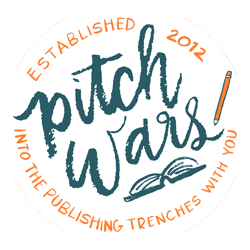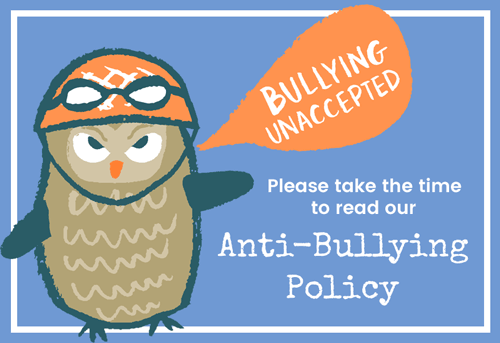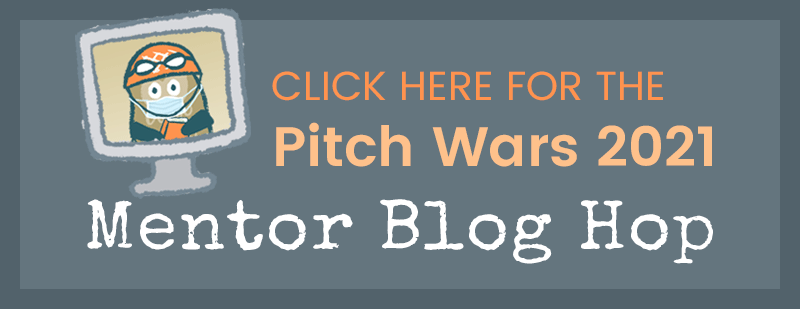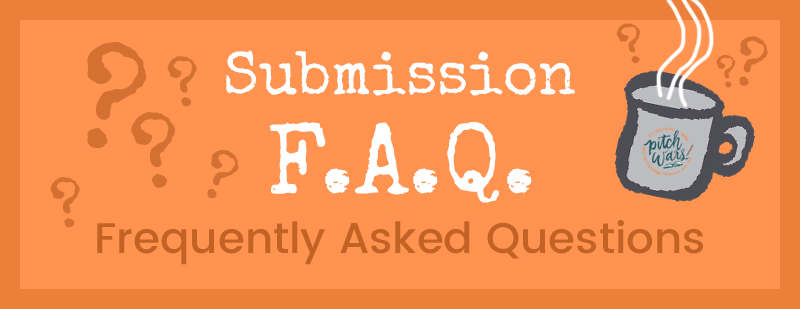 Welcome to the Pitch Wars Workshops with some of our amazing past and 2020 mentors. From a lottery drawing, we selected writers to receive a query and first page critique from one of our mentors. We’ll be posting some of the critiques leading up to the Pitch Wars submission window. Our hope is that these samples will help you in shining up your query and first page.
Welcome to the Pitch Wars Workshops with some of our amazing past and 2020 mentors. From a lottery drawing, we selected writers to receive a query and first page critique from one of our mentors. We’ll be posting some of the critiques leading up to the Pitch Wars submission window. Our hope is that these samples will help you in shining up your query and first page.
We appreciate our mentors for generously dedicating their time to do the critiques. If you have something encouraging to add, feel free to comment below. Please keep all comments tasteful. Our comments are set to moderate, and we will delete any inappropriate or hurtful ones before approving them.
Next up we have …
Pitch Wars Mentor Jake Nicholls

Jake Nicholls is a fiction editor who helps authors to develop their stories and hone their writing craft. At Future Worlds Editing, Jake specialises in working with writers of science fiction, fantasy and LGBTQIA+ fiction.
Their favourite part of being an editor is mentoring and championing emerging authors, especially those writing diverse books. Jake firmly believes that editing is not just about words: it’s about giving writers additional tools that will help them express their truth to the world.
Jake lives in the UK, but their head is often away in other universes. When not devouring books, they can be found stuck in a loop with their stubborn ‘I’m-not-going-that-way’ hound, eating liquorice, and delighting the neighbours with their newly found love of drumming.
Jake’s critique . . .
Category: Adult
Query:
[Overall, you’ve got a solid query letter here and it’s clear that you’ve done your research into what to include. Your book sounds really interesting! My main suggestion is to consider pinpointing Rebecca’s goals, conflicts and what’s at stake for her. Bringing these elements to the fore in your query will really pique the reader’s interest.]
[It’s great that you jump right in with the hook, here. You could consider rephrasing a little for brevity and to make it immediately clear why Floyd’s problem is also Rebecca’s problem. For example: “Rebecca Goodwin has a problem: her dead best friend has asked her to ditch her law career to help him guide souls to the Other Side.” Having said that, consider whether this is actually the story’s central conflict—the next paragraph suggests that quitting her job isn’t a difficult decision for Rebecca, so you might want to consider identifying the core conflict (if it’s something different) and writing the hook around that instead.] Rebecca Goodwin has a problem; her dead best friend has angered someone in middle management on the Other Side. As punishment, he has to convince spirits to cross into the light before a minion of Satan can take them for himself. And he’s recruited Rebecca to leave her career as a lawyer to help. TITLE is a work of adult paranormal fiction at 80,000 words.
[Consider making crystal clear throughout this mini synopsis where the conflict and stakes lie for Rebecca. It’s not too obvious at the moment what Rebecca wants and what (or who) is getting in the way of that—and those are the details that will hook an agent in.] Rebecca is a lawyer reluctantly following in the family tradition. But she has a secret. She still hangs out with her dead best friend, Floyd Reed. Floyd is still the mischievous person in death that he was in life, which has cost him dearly. After making a huge faux pas on the Other Side he has to guide souls into the light as punishment. When her law firm offers Rebecca a promotion, she has to make a choice between her career and saving her best friend from being sent to Purgatory, the decision is obvious. [As mentioned above, this sounds like a strong potential conflict for Rebecca—but if the decision is obvious, the conflict is deflated somewhat. Consider making clearer what the consequences of abandoning her career are (e.g. conflict with family, financial struggles), if this plays a role in the story.] Together, they create a spectral removal business, giving Rebecca an income, and Floyd the souls he needs to send to the Other Side. But someone has other ideas. William is a demon competing for the same trapped souls to send into the Left Door, a dismal place where souls reincarnate to repeat the same damning mistakes they made in their last life. Each case is a literal battle between good and evil. [Consider highlighting the personal stakes for Rebecca here—what would happen to her personally if she failed to guide the souls to the right place? It’s much easier to get readers interested in a specific character conflict than in a more general ‘good vs. evil’ conflict.] Ultimately, Floyd and Rebecca get caught in a web of evil they fear neither will escape from.
[The details about your writing qualifications and experience here are great.] I am a graduate of the NAME University MFA program, and I have had fiction published in Punchnel’s, Word River, Indiana English, and Mythic Indy. [While the following details are perfect for an author bio elsewhere, consider deleting anything that isn’t directly relevant to writing. You could keep the mention of ghost hunting by linking it to your writing—e.g. it gives you expertise in the paranormal.] I am the Volunteer Coordinator for the CITY Humane Society, and I am an amateur ghost and Bigfoot hunter. I live in CITY with my husband, three rescue dogs, and four rescue cats.
The full manuscript is available upon request. Thank you for your consideration.
First page:
While we are mourning the loss of our friend, others are rejoicing to meet him behind the veil. ~John Taylor
[I like this opening line! It sets the tone well and immediately introduces the paranormal elements of your story.] I had learned to ignore Floyd when he showed up in my office, mostly because he showed up all the time since he died. He wasn’t technically dead; he was a ghost or spirit or whatever term he wanted me to use that day. On this day, he asked to refer to him as a ghoul. [You could consider showing this in the conversation so that the reader gets a better sense of the characters and their relationship. For example: whether Floyd asks Rebecca to change how she refers to him out of whimsy or out of a more sincere personal preference—and how Rebecca reacts to these requests—will tell the reader a lot about the two of them.]
I sat bent over a contract on my desk when I felt a cold wisp of air wrap around my neck like a ribbon. I didn’t look up from my task.
“Whatcha doing?” [You could consider having Floyd address Rebecca by name in this line of dialogue to help establish her character more firmly from the first page.]
“Working,” I replied. “As if you didn’t already know that.”
“Oh.” He twisted away from me [I’m curious to know what Floyd looks like—a classic ghostly figure or something a bit different? Consider adding some description to help the reader visualise the scene.] and out into the middle of my tiny office at Newlin, Parks, and Johnson Attorneys at Law. [The rest of this paragraph contains quite a lot of backstory that isn’t immediately relevant to the situation of Rebecca having her dead best friend in her office. Consider either cutting this out and letting the reader discover it later on, or revealing some of this information through dialogue with Floyd. For example, depending on Floyd and Rebecca’s relationship dynamic, perhaps Floyd could tease her for being a “paper-pusher” or encourage her to follow her dream of being a writer. The strong sense of Rebecca’s voice that you have in this exposition could then shine through in her response (e.g. the quip about it running in the family), which would additionally help to establish a sense of her and Floyd’s friendship.] My father was a lawyer; and his father before. It ran in the family, like baldness or alcoholism. And ALANON for children of lawyers does not exist, so I succumbed to the expectation. But so far, I hated every minute of this job. At least corporate law wasn’t bad, and in a smaller city like Terre Vista, the most complicated thing I worked on were incorporation papers. In short, I was a paper-pusher. No high-pressure trials. No gut-wrenching divorces or custody cases. And I still hated it. I had wanted to be a writer, but my parents preferred not to pay for a “worthless” degree. So there I was, in the law firm my father had helped secure a job for me in, struggling to complete the paperwork with a dead guy starting at me.
“Are you bored?” I asked. “Can I entertain you?”
“Yes, please.” [This exchange (which I assume continues on the next page) gives a good sense of the characters and how they interact with one another. By cutting some of the above exposition and getting to this sooner, you’ll grab the reader’s attention right off the bat.]
[Thank you for sharing this with me! I hope you find some of my suggestions useful—use what resonates with you, and feel free to ignore the rest. Best of luck with querying!]







